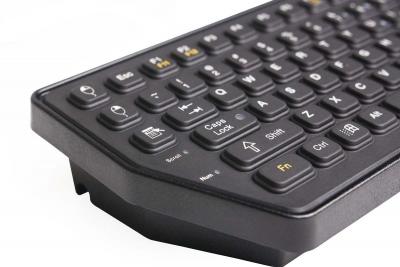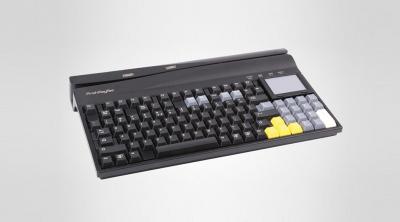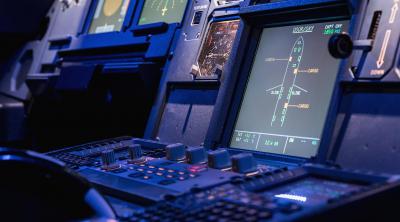Introduction to Industrial Automation
Industrial automation is the employment of various control systems, machinery, and technologies to manage and control industrial processes, minimising human intervention. This technology has revolutionised manufacturing and industrial operations, leading to increased efficiency, productivity, and safety.
The Components of Industrial Automation
Programmable Logic Controllers (PLCs)
PLCs are sophisticated computing devices that facilitate the execution of complex control algorithms for industrial processes. They serve as the brain of an automation system and can be easily reprogrammed to adapt to new requirements.
Human-Machine Interfaces (HMIs)
HMIs provide a user-friendly interface for interaction between human operators and automation systems. They display essential information about the system, such as performance indicators, alarms, and system status.
Industrial Robots
Industrial robots perform a variety of tasks, including material handling, welding, painting, and assembly. They provide unparalleled precision, speed, and flexibility, which contribute to the overall efficiency of an automation system.
Sensors and Actuators
Sensors detect changes in environmental factors, such as temperature, pressure, and humidity, while actuators convert the electrical signals from sensors into mechanical movement. These components are crucial in maintaining optimal process conditions and ensuring product quality.
Types of Industrial Automation Systems
Fixed Automation
Fixed automation, also known as hard automation, is a system with a fixed sequence of operations that cannot be modified without significant effort. This type of automation is best suited for high-volume production environments where process repeatability and consistency are crucial.
Flexible Automation
Flexible automation allows for easy reconfiguration of the system to accommodate changes in product design, production volume, or manufacturing processes. This type of automation is ideal for industries with frequent product updates and customisations, as well as in situations where rapid response to market changes is necessary.
Integrated Automation
Integrated automation combines multiple automation systems into a cohesive, interconnected network, enabling seamless communication and data exchange between different parts of the production process. This comprehensive approach facilitates better decision-making, improved efficiency, and increased overall productivity.
Key Benefits and Applications
Increased Efficiency and Productivity
Industrial automation systems enable rapid production processes and reduced cycle times, resulting in higher output and increased overall productivity.
Enhanced Quality and Precision
Automation systems minimise human error and ensure consistent product quality, while robots and other automated machinery offer greater precision than manual processes.
Improved Worker Safety
Automation reduces the need for human involvement in hazardous or repetitive tasks, protecting workers from potential injury and improving overall workplace safety.
Reduced Operational Costs
Automation systems can operate around the clock, reducing labour costs and improving resource utilisation. Additionally, the increased efficiency and reduced waste associated with automation contribute to a reduction in operational expenses.
Emerging Trends and Future Outlook
Industrial Internet of Things (IIoT)
The IIoT is a network of interconnected devices, sensors, and machinery that enables real-time data collection, analysis, and communication across the entire production process. This interconnectivity allows for improved decision-making, predictive maintenance, and optimised resource allocation.
Artificial Intelligence and Machine Learning
AI and machine learning technologies are increasingly being integrated into industrial automation systems to enhance their capabilities. These technologies enable machines to learn from data, adapt to new situations, and improve their performance over time. This results in more intelligent and efficient automation systems.
Collaborative Robots (Cobots)
Cobots are a new generation of robots designed to work alongside human operators, sharing the same workspace and collaborating on tasks. These robots are equipped with advanced safety features, making them suitable for a wide range of applications in various industries.
Digital Twin Technology
Digital twins are virtual replicas of physical assets, processes, or systems, which can be used to simulate, predict, and optimise the performance of their real-world counterparts. The integration of digital twin technology into industrial automation systems enables businesses to identify potential issues and make data-driven decisions to improve overall efficiency and productivity.
In Conclusion
Industrial automation is a driving force behind the revolution of manufacturing and industrial processes. With the continuous advancements in technology, the benefits of automation are becoming increasingly apparent, and the integration of emerging trends, such as IIoT, AI, and digital twin technology, is set to further enhance the capabilities of automation systems.
By investing in industrial automation, businesses can reap the rewards of increased efficiency, productivity, and safety, while simultaneously reducing operational costs and staying ahead in today's competitive market.
FAQs on Industrial Automation
Q1: What industries can benefit from industrial automation?
A1: Industrial automation is widely used across various sectors, including automotive, pharmaceutical, food and beverage, electronics, textiles, and plastics. Any industry that requires repetitive tasks, precision, and speed can potentially benefit from adopting industrial automation solutions.
Q2: How can businesses integrate industrial automation into their existing processes?
A2: Businesses can start by identifying areas of their operations that can benefit from automation and then select the appropriate technologies and solutions. Collaborating with a reputable industrial automation supplier, such as Rugged Limited, can help in choosing the right systems and ensuring a smooth integration process.
Q3: Are there any drawbacks to implementing industrial automation?
A3: While industrial automation offers numerous benefits, it also requires a significant initial investment for the acquisition and integration of automation systems. Additionally, businesses must invest in employee training to manage and maintain these systems effectively. However, the long-term benefits of automation, such as increased productivity and reduced operational costs, typically outweigh the initial investment.
Q4: How do collaborative robots differ from traditional industrial robots?
A4: Collaborative robots, or cobots, are designed to work alongside human operators and share the same workspace. They are equipped with advanced safety features to protect workers and can be easily programmed and reconfigured for various tasks. Traditional industrial robots, on the other hand, often require separation from human operators and may be limited to specific tasks.
Q5: How can Rugged Limited help businesses with their industrial automation needs?
A5: Rugged Limited is a leading supplier of industrial automation solutions, offering a wide range of products and services to meet the diverse requirements of different industries. By partnering with Rugged Limited, businesses can access expert advice, cutting-edge technologies, and comprehensive support throughout the integration process.
Rugged Limited: Your Trusted Partner in Industrial Automation Solutions
Rugged Limited is a renowned supplier of high-quality industrial automation products and services, committed to helping businesses harness the power of automation to revolutionise their operations. With an extensive portfolio of rugged computers, peripherals and industrial connectivity products, Rugged Limited offers tailor-made solutions to meet the unique needs of each client.
By collaborating with Rugged Limited, businesses can benefit from expert guidance and technical support throughout the integration process, ensuring a seamless transition to automated systems. With a focus on innovation, quality, and customer satisfaction, Rugged Limited is the ideal partner for businesses seeking to improve efficiency, productivity, and competitiveness through industrial automation.


 EUR - Euro
EUR - Euro USD - US Dollar
USD - US Dollar













